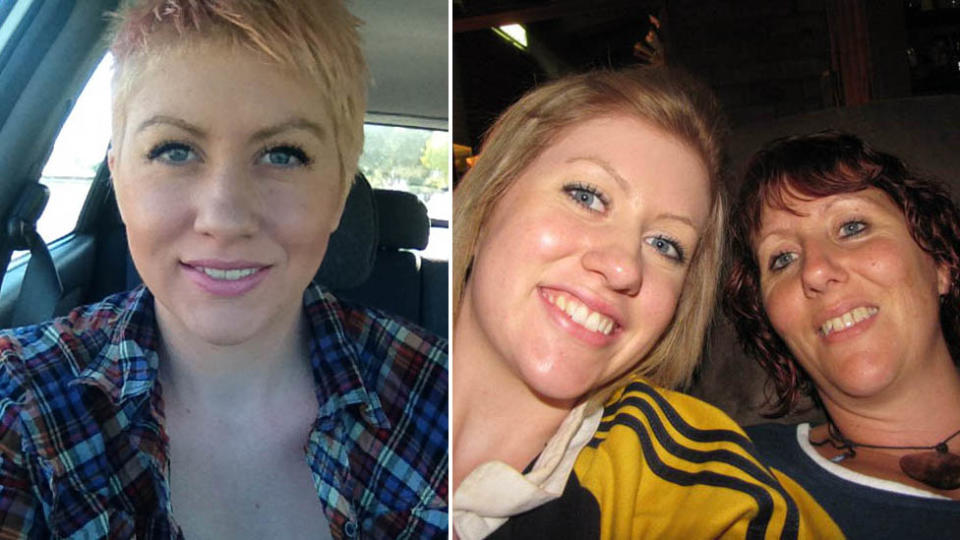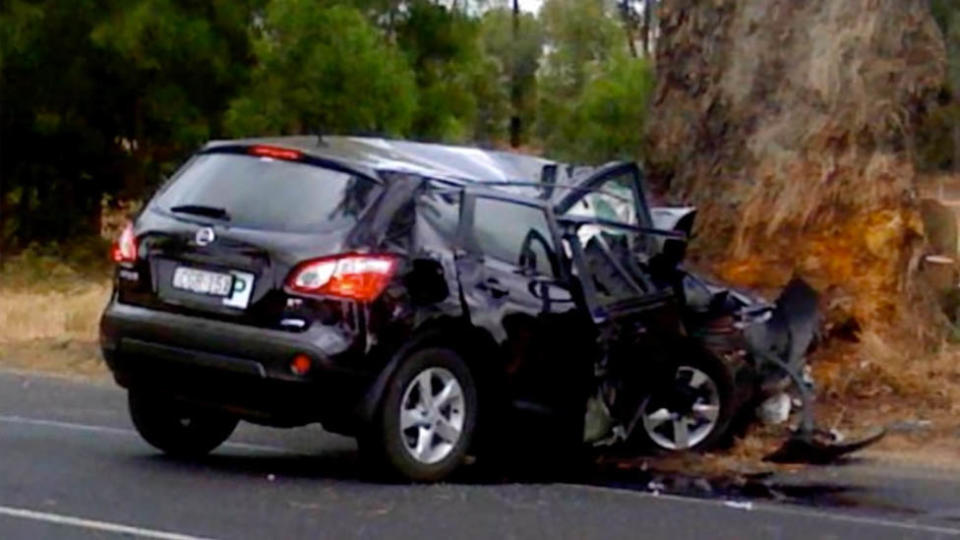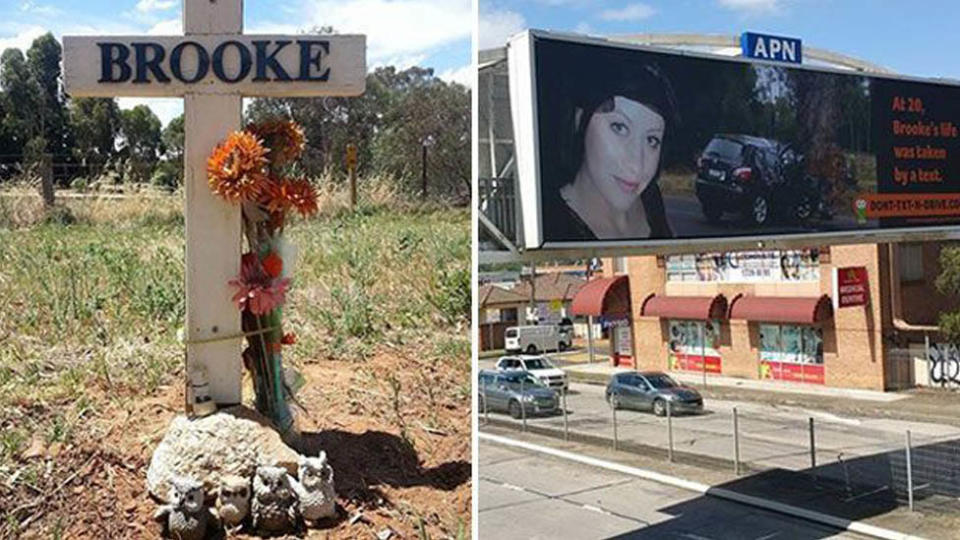‘I just had this gut feeling’: Devastating moment mum discovers 20-year-old’s crash death
Seven years ago, Brooke Richardson was the first person in Victoria to to die from texting and driving.
The 20-year-old hairdresser was on her way to work in Cobram, on the NSW-Victorian border, about 8:30am on December 4, 2012, when she sent a text message to confirm a client's appointment.
Police believe Brooke then dropped her phone on the car floor and as she took her eyes off the road to retrieve it, Brooke’s car slammed head-first into a tree, killing her instantly.
“She had a brand new car with Bluetooth but she was just used to having her phone in her hand and doing the action rather than using the Bluetooth,” Brookes mother, Vicki Richardson, told Yahoo News Australia.
It was Brooke’s manager who called her mother to deliver the tragic news.

“I got a phone call from her boss just before 9am and he said, ‘Brooke hasn’t turned up for work and I’ve heard there is an accident down the road and from what I’ve been told it’s a car similar to hers’,” she said.
Ms Richardson said she knew instantly that car was her daughter’s and rushed home with her parents where she started making calls to find out more information.
“It’s weird but mother’s instinct, I just had this gut feeling that it was her,” she said.
'It’s so dangerous': The biggest hazard on the road scaring paramedics
The most dangerous behaviours teens engage in behind the wheel
A few hours later Brooke’s father, police officer Mark Richardson, was able to confirm that it was his daughter who had died in the crash. He relayed the information to Ms Richardson in a call she would never forget.
“The sound my body made that day, I don’t even know if I could ever make it again,” Ms Richardson said.
She was so distraught that she had to be restrained and her “poor mum and dad had to sit on top of me”.
“It was just horrible and it’s just something you don’t want anyone else to go through,” she said.

Brooke’s law
A week after her daughter died, Ms Richardson launched the Don’t-txt-n-drive foundation in memory of her daughter, who she said always wanted to make a difference to someone’s life.
“I think she knew that there was something big for her to do,” Ms Richardson said, adding that it was in Brooke’s nature to help others.
“She loved everyone, she was super friendly and was never judgemental, she just accepted people for who they were.”
Ms Richardson said at the time of her daughter’s death there was “nothing out there, there was no warning” about texting and driving, and she desperately wanted to change that.
Ms Richardson decided to put money from Brooke’s life insurance into the foundation and started telling Brooke’s story to media and local communities.
The foundation advertised the Don’t-text-and-drive message on billboards and radio stations.
Three months later, Victoria was getting ready to announce a new law banning P-platers from touching mobiles phones while driving – it was dubbed ‘Brooke’s Law’.

Don’t-txt-and-drive foundation
Seven years on and Ms Richardson hasn’t stopped spreading Brooke’s message, holding fundraising days named after Brooke’s favourite colour, Orange Days, and speaking around the country at schools, community groups and sports clubs to spread the message of the dangers of texting and driving.
“I say do you want to do this to your mum? do you want to make your parents drive to coroners court and have to identify your body and organise your funeral?” she said.
“I put the ownership on them.”
And when it comes to teenagers and adults, she points out that there are consequences that can destroy lives, even if you escape death in an accident.
“A lot of people don’t understand or realise that if they hurt someone jail is a really high factor,” she said, adding that she has worked with incarcerated people in jail for fatal driving offences.

“Brooke could have easily been in jail because she could have hit someone coming the other way.”
Money raised from Orange Days goes back into the foundation and leaves a permanent mark behind in each community.
“We buy them a sign and we have them in the car park, so when people drive out, the last thing they see is the message ‘Don’t text and drive’,” she said.
Speaking about her late daughter isn’t always easy for Ms Richardson but she told Yahoo News it’s worth it because the message is getting through.
“I think that’s why people like Brooke’s story because it’s real for kids, I can have a year 10, 11 or 12 male student walk up and say ‘can I hug you please’,” she said.
And she hopes the story sticks with people long after she has finished telling it.
“It’s whether they remember once they get with their peers,” she added.
Strict laws for drivers caught using mobiles

NSW recently introduced mobile detection cameras from the beginning of December to catch drivers who illegally use mobile phones while driving, facing fines of up to $457.
Queensland will set records from February 1, introducing a $1000 fine for drivers caught using their mobile phones, the highest ever fine for such an offence.
Ms Richardson said although she would like to see warning signs taken down alerting drivers to the mobile detection cameras, the $1000 QLD fine is moving in the right direction.
“Its a great step forward because there has to be some deterrent, and you know sometimes $500 isn’t deterring people,” she said.
Ms Richardson told Yahoo News that six weeks before her death, Brooke was searching for a way to give back and asked her mum if she could donate a kidney.
“I said, ‘no you can’t donate a kidney’, but she was just looking for something ... she knew that there was something out there that she wanted to do and now I think, that this is it,” Ms Richardson said.
Do you have a story tip? Email: newsroomau@yahoonews.com.
You can also follow us on Facebook, Instagram and Twitter and download the Yahoo News app from the App Store or Google Play.



